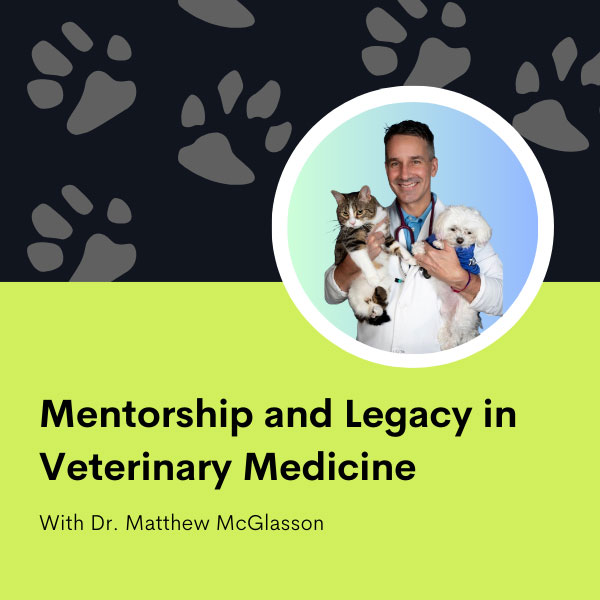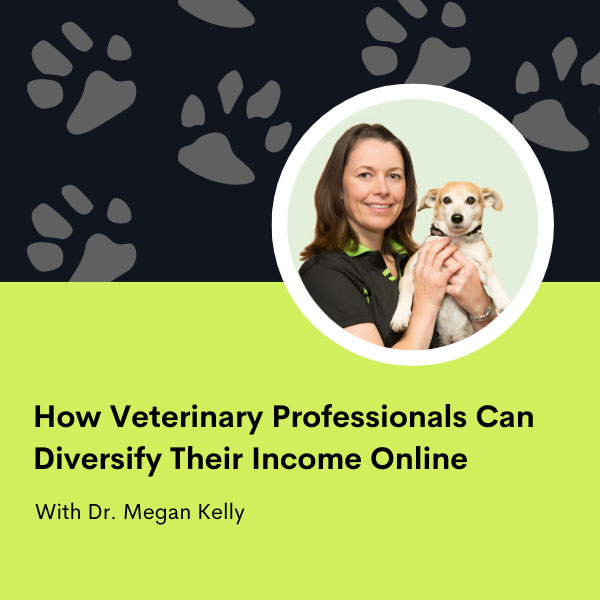A New Look at Veterinary Neurology
Podcast: Play in new window | Download
In this insightful episode of the Veterinary Business Podcast, Dr. Peter Weinstein hosts Dr. Fred Wininger, a veterinary neurologist and neurosurgeon, to discuss the future of veterinary neurology and specialty practice. Dr. Wininger shares his vision for an innovative “hub-and-spoke” model designed to bring high-quality specialty care to underserved areas while maintaining clinical excellence and affordability. They dive into the challenges of attracting the next generation of specialists, the rising costs of specialty training, and how corporate consolidation is impacting the industry. Dr. Wininger explains his goal to blend clinical practice, mentorship, and sustainable business strategies to redefine the future of veterinary care.
Key Takeaways:
- Challenges in Veterinary Specialty Education: Dr. Wininger highlights the drop in veterinary students pursuing specialty training, discussing factors like financial debt, barriers to entry, and lack of mentorship.
- The Hub-and-Spoke Model for Specialty Care: Dr. Wininger’s vision of a central “hub” for advanced procedures with satellite clinics aims to increase access to affordable specialty care while empowering veterinarians with greater flexibility and work-life balance.
- Importance of Mentorship and Inspiration: With fewer specialists entering academia, Dr. Wininger stresses the need for inspiring educators and role models to guide students toward specialty fields.
- Corporate Influence on Specialty Practices: They discuss the benefits and challenges of corporate-owned practices, including cost efficiencies and pressures on providers, and Dr. Wininger’s preference for locally-owned, mission-driven practices.
- Access to Care and Financial Models: The rising costs of equipment and procedures in veterinary medicine require sustainable business models, and Dr. Wininger advocates for adaptable pricing structures and a focus on mentorship to bridge this gap.
- Innovative Teaching Methods: Dr. Wininger explores how unconventional teaching methods, including social media and virtual rounds, can inspire students and provide accessible, ongoing education.
Listen to this Episode on
Timestamp
- 00:00 – Introduction: Dr. Peter Weinstein introduces the episode and Dr. Fred Wininger.
- 02:48 – Background: Dr. Wininger shares his journey through veterinary school, residency, and private practice.
- 11:38 – Decline in Specialty Education: Discussion on why fewer veterinary students pursue residencies and specialties, citing financial burdens and lack of role models.
- 17:04 – The Need for Mentorship in Academia: Importance of mentors and inspirational educators for the next generation of veterinarians.
- 32:55 – Corporate-Owned vs. Private Practices: Pros and cons of corporate veterinary practices versus locally-owned clinics.
- 37:45 – Introduction to the Hub-and-Spoke Model: Dr. Wininger’s vision for a central specialty hub with supporting satellite clinics to serve underserved areas.
- Cost of Specialty Care: Breaking down the expenses associated with running a specialty practice, including high equipment and staffing costs.
- Teaching through Social Media: How Dr. Wininger uses social media and unconventional methods to educate and inspire veterinary students globally.
- Future Vision for Animal Neurology Center: Dr. Wininger’s plans for opening his neurology center and how it integrates education, high-quality care, and accessible services.
- 1:09:37 – Closing Remarks: Dr. Weinstein wraps up the discussion, emphasizing the importance of passion and purpose in veterinary medicine.

Fred Wininger, VMD, MS, DACVIM (Neurology)
- Veterinary Neurologist/Neurosurgeon
Dr. Fred Wininger earned his Doctor of Veterinary Medicine (VMD) degree from the University of Pennsylvania, followed by a small animal rotating internship at the University of Georgia. He completed his neurology and neurosurgery residency at Washington State University, where he developed a passion for neuroimaging and created a novel neuronavigation device.
Dr. Wininger joined the faculty at the University of Missouri, contributing to the Comparative Neurology Laboratory. This group focused on identifying and treating diseases with analogues in both animals and humans. Notably, their work included developing curative gene therapies for Battens disease (neuronal ceroid lipofuscinosis) in children and dachshunds, as well as discovering novel genetic variants in a dog model for Lou Gehrig’s disease (Amyotrophic Lateral Sclerosis or ALS).
After his tenure at the University of Missouri, Dr. Wininger practiced in St. Louis, where he established the first hybrid private practice/academic neurology residency program, which continues to thrive. Today, he is a proud member of Charlotte Animal Referral and Emergency (CARE), where he and his team offer cutting-edge veterinary neurology and neurosurgery.
In addition to his clinical work, Dr. Wininger is the founder and operator of 3D Veterinary Printing LLC, a company dedicated to creating models and customized surgical tools for veterinary surgeons and neurosurgeons worldwide. He is passionate about making veterinary neurology accessible, working to dispel “neurophobia” through innovative educational models designed for both veterinary professionals and pet owners.
Dr. Wininger also maintains an academic presence as an Adjunct Professor at the University of Missouri and North Carolina State University, where he teaches veterinary students and consults on various research projects.
Connect with Dr. Wininger:



